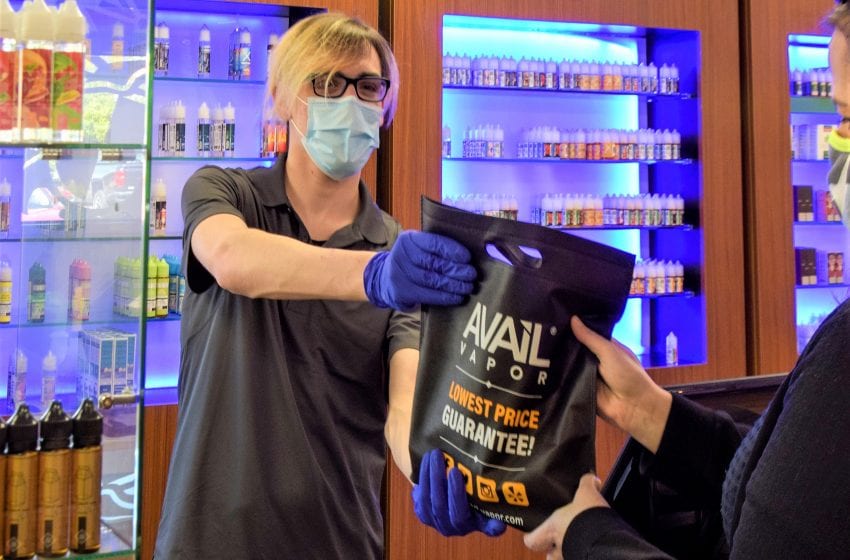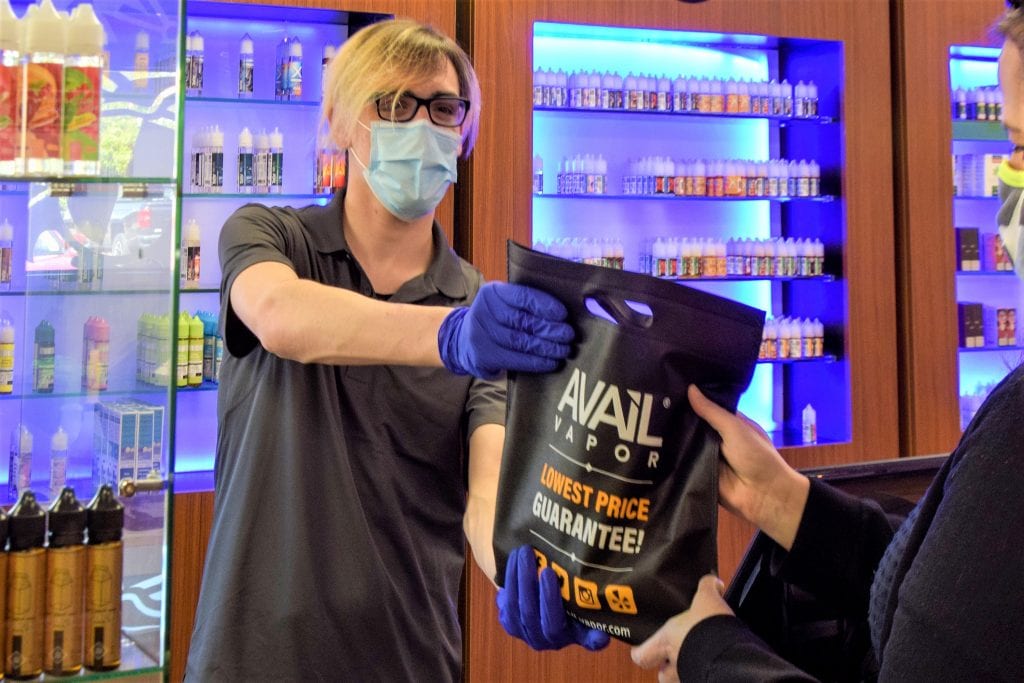
Avail Vapor and its subsidiaries are returning to near-normal operations, but several challenges remain.
By Timothy S. Donahue
The challenges in the vapor industry are many. Anti-vaping rhetoric is at an all-time high. After an outbreak of lung disease wrongfully blamed on electronic nicotine-delivery systems (ENDS) coupled by the Covid-19 pandemic, the U.S. Food and Drug Administration (FDA) still wants its premarket tobacco product applications (PMTAs) submitted by Sept. 9, 2020. While the 90-day reprieve was welcomed, at least one industry expert says the industry will struggle to meet the deadline.
James Xu is the founder of Avail Vapor and chairman of two other businesses that recently grew out of Avail—Blackbriar Regulatory Service (BRS) and Blackship Technologies. Avail started out in 2014 as a retailer, and the company continues to concentrate on retail operation. Avail has 99 stores spread out in 12 different states from Detroit, Michigan, to Atlanta, Georgia. BRS centers around providing the FDA PMTA service, laboratory work and contract manufacturing mostly for the vapor industry, and Blackship Technologies provides research and development service for the next-generation vapor device.
With retail operations in several localities, Xu said that, as of March 14, only 49 Avail stores were still fully operating. In those environments, store employees have limited contact, practice social distancing, have less than 10 people in the store and follow all local rules relating to the pandemic. The stores have also implemented strict sanitizing protocols, according to Xu. “We have very detailed guidelines for our employees. And we were able to secure some of the [personal protective equipment] supply before everything ran out … I believe we are one of the very first few businesses that required all our employees to wear masks,” says Xu. “We also very, very early on stopped the sampling [of e-liquids] because that’s one of the areas we identified that could spread the disease … when a customer leaves, there will be a detailed cleaning procedure. And then every single hour, we’re going to do another deep clean.”
Avail has a combined 460 employees between its three entities with most concentrated in retail operations. During the TMA digital conference “Unsteady Ground: Shifting Landscapes” in May, Xu told attendees that he has been able to preserve most of his staff and has had limited layoffs. He also said that he believed vape shops should have been labeled as essential businesses in more communities.
“The safety of our employees is the number one concern. And the second one is our customer safety. We definitely try to put those things in the most important positions,” he said. “That’s how we evaluate whether to open stores or not to open stores [when local laws allow]. Questions and answers from the seminar have been edited for space.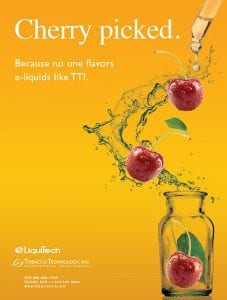
Vapor Voice: How have sales been for the stores that are open; was there a huge uptick before the businesses closed?
James Xu: We are already at a half capacity right now. And for the business leading to the lockdown, yes, we did see an uptick with the business because everybody tried to [get] stocked up. And then, of course, with some of the store shutdowns, we definitely saw a major drop. But overall, I will say that the stores [that] remain open, it’s pretty consistent at the normal level right now.
What were your business goals for 2020 before the pandemic, and how have they changed?
Well, before the pandemic, of course, the number one biggest event for the industry is [the] PMTA … we were going to see what exactly [the] FDA is going to police to the industry to truly execute their vison after the PMTA. We do have a major expansion plan once the FDA’s PMTA [submission requirements] become clear. Right now, the PMTA date is delayed, but the focus hasn’t changed any. We’re still concentrating on submitting our PMTA before the deadline and then to see how everything works out.
How is the company going about gathering the required data? There are a lot of labs that are closed. I imagine that you have started to see complications.
Well, the delay on [the] PMTA is not surprising to anybody because most of the hardware to support the vapor industry is coming from China. And since [the] Chinese New Year, which is the end of January, and China was in a lockdown stage … that definitely complicated many of the abilities to have product shipped. And now with the U.S.-based lab and business in the lockdown stage, that definitely delayed everything. So, postponing the PMTA deadline to September, it’s not a surprise to any of us. And it definitely makes it more challenging because right now … we all know [the] PMTA deadline got shifted five or six times. And with all the shifting, we’re already working with a very, very tight deadline. Everything has to work perfectly to be on time. And now, even with China reopening, we are facing a lot of uncertainty here.
Are there other challenges related to the PMTA and the pandemic?
Well, mostly it’s the challenge in the lab, right? Lots of the labs shut down and also with the [slow shipping] back and forth, it becomes very, very challenging right now. So each CRO [contract research organization], it’s a unique case. It definitely makes a PMTA submission process very challenging to this point.
We know you are working with your own brand, Avail, as well as some other companies such as Charlie’s Chalk Dust. Is there enough time to be able to do these PMTAs? Do you think that the FDA is going to have to extend the deadline again?
We work with about 10 different companies to handle their PMTA work. We have a balanced approach between the cost versus the data … because [the] PMTA is very, very vague. How much material do you submit? We don’t have [an] unlimited budget like many of the other business, so luckily, at [BRS], we can still have the best combination for the cost and the scope of work. We do handle most of the very well-known brands, both from the manufacturing side to the hardware side and also the e-liquids.
Is [the] FDA going to extend it again? I don’t know. That totally depends on how this pandemic evolves. And at this point, everybody is kind of waiting to see. The bulk of the work is already completed. The added time will kind of give us a little bit more time to better review it. We absolutely can use the extra time that we got …. For us, we definitely are not going to wait for the September deadline. We are going to submit as soon as we are ready.
How close are you to being able to make a submission for one of the brands?
That depends. And again, that’s a moving target each day because, again, right now we’re working in a very unpredictable environment … each contractor is facing their unique challenges during this pandemic. So, for us to put all of those puzzle pieces together, it’s definitely challenging. The deadline is kind of like what we have to evaluate every day. But as soon as we are ready, again, we’re not going to wait until the last minute. We are going to submit very quickly.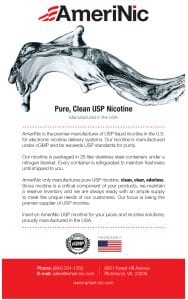
When we talk about vapor products, we typically associate the idea that the PMTA is based on vapor products and their potential for harm reduction. How do you address this in stores with customers when you as the retailer or even the manufacturer cannot make any health claims?
Well, we are in a very tough spot because other people can make all kinds of claims against the industry, and many often could be false. But our hands are tied because we cannot make any health claims, right? Even if we endorse some customer’s testimony or refer to other studies, that also could be a gray area, right? So, it really put us—the whole industry—in a very compromised position.
What we usually tell our employees when customers come in is [to] try to use their personal experience instead of a statement [about] a company. That’s how we usually communicate. Then we will [also] point out all the resources available so the customer can get a balanced view [of] the pros and cons of vaping. It’s a very fine balance that we work. We wish the agency [the FDA] would just kind of like give us a clear guideline. I believe that the government, they have a huge role in this. Lots of misinformation was spread, especially during the vaping [lung disease] epidemic [from black market THC products]. A huge amount of damage was done to the industry.
A lot of people are under the impression right now that vaping is a lot more deadly than smoking. And that’s very dangerous. So, I believe the government has the responsibility to at least educate people where vaping is compared with cigarettes as a harm reduction product. For us, we face the customer every day. So, we should have more power to really be able to talk to a customer, and it needs to be scientifically based, but we need to be able to give the customer a balanced view.

What are the conversion rates right now? Are most Avail customers smokers or former smokers?
Well, the rate continues to change, and right now, the conversion rate is still too low, and we calculate it to a little bit below 20 percent. This is because the product is still not user-friendly enough because … the vaping industry is still less than 10 years old … so there are a lot of those kinds of obstacles for people who [want to] stick with a vaping product. For example, taste. And leakage is another major issue.
There has been talk about supply chain disruptions and product not coming from China as quickly as it should. What’s going on with the Chinese vapor market?
We have constant contact with the Chinese manufacturers. Most of the U.S. distributors and the retailers bought about four weeks of supply to last the normal Chinese New Year [slowdown]. And then because China went into complete lockdown because of the coronavirus … [there was only] one month that most of the retailers or distributors didn’t prepare for. That caused a major disruption with the supply chain, but right now, everything in China is back to normal, but shipping still has issues.
Most of the hardware is being shipped from China, and when the commercial airlines stopped all their operations—commercial airlines account for about 45 percent of the cargo volume—half of that volume has disappeared. UPS and DHL, they just couldn’t catch up to ship the product fast enough. That’s the bottleneck we’re facing right now. The Chinese factories are at full capacity—they’re back to work—but they [do] have a major problem actually delivering the product into our hands right now.
Yes, it’s bad. But, if you allow an extra 10 days then you shouldn’t have that problem. So instead of counting on product leaving the factory to get to your store in about a week, right now, I would count on two weeks or a little bit more.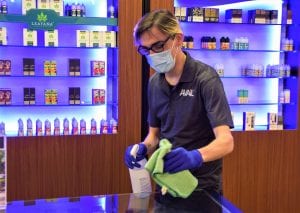
Considering this pandemic and what’s going on with the PMTAs alongside flavor bans and other types of regulation being enacted differently in different U.S. states and countries, where do you see the future of the vapor industry?
In five years, no matter what, you cannot dial back the clock. We’re going to see more people vaping instead of smoking. We’re going to see that the truth eventually will come out. More smokers are going to convert to vaping. There is a lot of misinformation out there … and that’s why I wake up each morning and go to work … because I believe in this industry.
The FDA’s enforcement will be key because if no enforcement happens, like the first round [of guidelines], it’s going to be the Wild West again. It’s actually going to put the industry in an even more compromised position than ever. The good players are going to get punished—the good players that play by the book and waste all the money on PMTAs but have zero benefits. That’s the worst-case scenario. If PMTA enforcement is too strict, that definitely is going to limit the competition.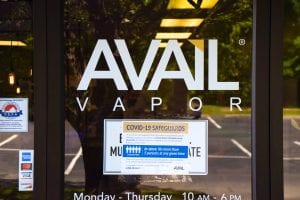
How is [the] FDA going to balance all that, allow better, safer product come to market? They also need to make sure the integrity of the product is there to ensure the safety of the customer. It’s a fine balance. Long term? We absolutely believe in a bright future. But how is everything going to play out? We have to wait and see.

